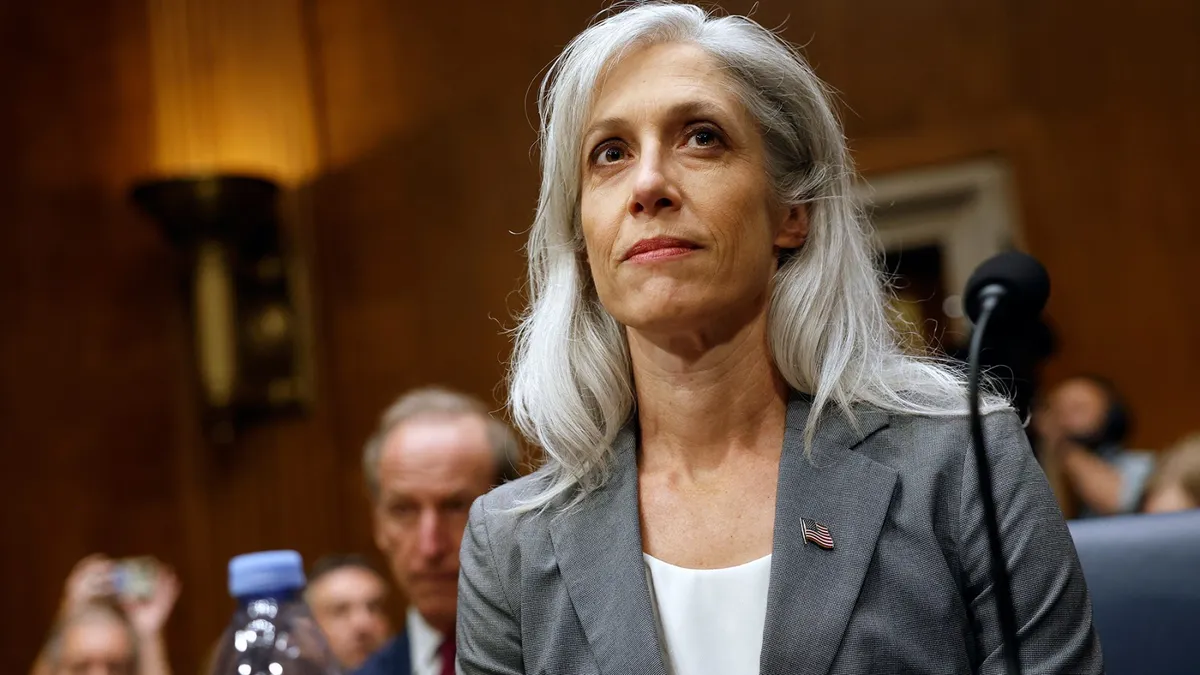
On Wednesday, former high-ranking officials at the Centers for Disease Control and Prevention (CDC) testified before senators, expressing serious concerns regarding Robert F. Kennedy Jr.'s recent appointment as the nation’s top health care regulator. These officials claimed that Kennedy's leadership has fostered an anti-scientific culture characterized by censorship and arbitrary policy changes, which they argue are jeopardizing the health of Americans.
Central to the Senate Committee on Health, Education, Labor and Pensions' inquiry was Susan Monarez, the former CDC Director who was dismissed by Kennedy, who served under Donald Trump as the Secretary of Health and Human Services (HHS). Monarez stated that she was pressured to approve new vaccine recommendations that disregarded “scientific evidence.” Furthermore, she was instructed to terminate other CDC officials who were involved in developing vaccine policy “without cause.”
During her testimony, Monarez recounted, “He said if I was unwilling to do both, I should resign.” She firmly replied that she could not endorse recommendations without first reviewing the supporting evidence and that she had no justification to dismiss the scientific experts at the CDC.
Monarez further revealed that Kennedy had prohibited her from communicating with members of Congress after she voiced her concerns about his proposed vaccine policies. “Secretary Kennedy became aware of that, and he was very concerned that I had spoken to members of Congress,” she explained. “And he told me I was never to do it again.” This restriction raised alarms about transparency and accountability within the agency.
Another key witness, Debra Houry, who held the position of Deputy Director for Program and Science at the CDC, also testified against Kennedy's leadership. Houry, who resigned following Monarez’s ousting, stated that Kennedy had actively censored CDC science and politicized its processes. She lamented that Kennedy refused to engage in briefings with her office, despite multiple attempts to provide him with essential updates.
“We would have loved to have had the conversations with him,” Houry noted, indicating a lost opportunity for collaborative dialogue aimed at improving public health outcomes. She added that she often sent emails to inform HHS leaders of instances where Kennedy made statements that lacked scientific accuracy, but these requests were largely ignored.
Both former officials expressed grave concerns about the nation's preparedness for future disease outbreaks. Houry pointed out that she only became aware of significant changes to the CDC's Covid-19 vaccine guidance through social media, highlighting the lack of communication and transparency.
In a broader context, Kennedy's controversial actions coincide with a troubling rise in global vaccine skepticism. A recent report by NBC News, in collaboration with Stanford University, revealed that a significant portion of the U.S. population lacks the foundational immunity necessary to prevent the spread of diseases like measles. The report disclosed that since 2019, 77 percent of U.S. counties and local jurisdictions have experienced a decline in childhood vaccination rates.
During her testimony, Monarez emphasized the critical question facing lawmakers: “Will we keep faith with our children and grandchildren, ensuring they remain safe from the diseases we fought so hard to defeat: polio, measles, diphtheria, whooping cough, and many others?” She warned that reversing progress in vaccination would not only be reckless but would also betray the trust of families who rely on the CDC to safeguard their health.
The testimonies from Monarez and Houry underscore the urgent need for a return to evidence-based decision-making at the CDC, particularly as the country confronts significant public health challenges.